Hi, Let’s discuss the Best Free Microsoft Courses Available in 2024. This is exciting news for all who want to learn certification courses for professionals. Microsoft is offering free certification courses for professionals to improve their careers.
This course provides all the details about everything related to it. This type of course will increase the professional’s hope via Microsoft. This is an incredible opportunity to upskill yourself and boost your career.
With these free courses, Microsoft offers different lectures, such as video lectures, easy notes, tutorials about particular courses, etc. This learning method will help professionals grow in their careers.
In this article, we will share the details about the courses that are available for free. There are many courses available at different time limits for that course. There are no fees, subscriptions, or registrations required for these courses.
- Create Windows 11 23H2 Entra ID Device Group | Azure AD
- Azure AD Dynamic Device Group Managed by MDE Defender for Endpoint | MicrosoftSense
- Azure Networking Services Training | Azure Tips
Best Free Microsoft Courses Available in 2024
Microsoft Will Offer the best free courses in 2024. The courses are essential for professionals to learn about. There are 14 courses available in different categories for Azure and Microsoft 365. The courses are beginner-level and available in different languages.
| Course Numbers | Courses |
|---|---|
| 1 | Microsoft Azure Fundamentals |
| 2 | Developing Solutions for Microsoft Azure |
| 3 | Microsoft Azure Administrator |
| 4 | Configuring and Operating Microsoft Azure Virtual Desktop |
| 5 | Designing Microsoft Azure Infrastructure Solutions |
| 6 | Microsoft Azure Data Fundamentals |
| 7 | Microsoft Azure AI Fundamentals |
| 8 | Designing and Implementing a Microsoft Azure AI Solution |
| 9 | Develop Generative AI Solutions with Azure OpenAI Service |
| 10 | Microsoft Security, Compliance, and Identity Fundamentals |
| 11 | Data Engineering on Microsoft Azure |
| 12 | Microsoft Security Operations Analyst |
| 13 | Designing and Implementing Microsoft Azure Networking Solutions |
| 14 | Designing and implementing a data science solution on Azure |
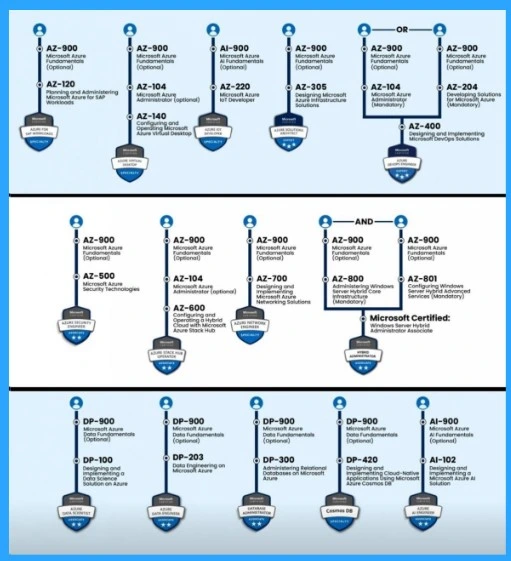
1. Microsoft Azure Fundamentals
This course is suitable for IT personnel who are just beginning to work with Azure and want to learn about its offerings and get hands-on experience with the product. This course aims to provide foundational knowledge on Azure and prepare students for the AZ-900 exam and other role-based courses and certifications, such as Azure Administrator.
Note: There are no prerequisites for taking this course, but general IT knowledge and experience are recommended.
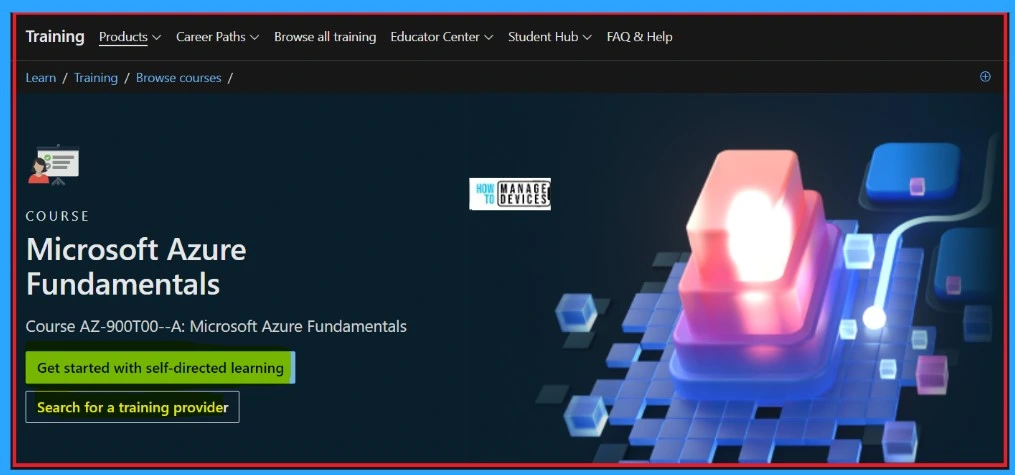
2. Developing Solutions for Microsoft Azure
This course teaches developers how to create end-to-end solutions in Microsoft Azure using various Azure services and technologies. The main aim is for students to learn how to implement Azure compute solutions, create Azure Functions, implement and manage web apps, and develop solutions utilizing Azure storage.
Students can choose between instructor-led training or self-paced study. The course is for those interested in Azure development or passing the Microsoft Azure Developer Associate certification exam.
Read more – New Azure Virtual Desktop App in the Microsoft Store Winget and Intune
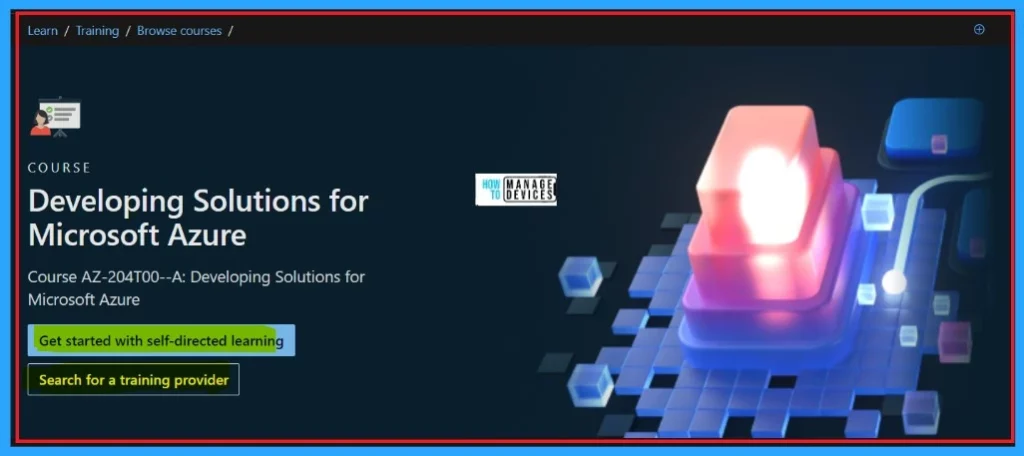
- Free Download Azure Architecture Icons
- New Azure Virtual Desktop App in the Microsoft Store Winget and Intune
3. Microsoft Azure Administrator
Microsoft Azure Administrator course will teach IT Professionals how to manage their Azure subscriptions, secure identities, configure virtual networking, connect Azure and on-premises sites, manage network traffic, implement storage solutions, create and scale virtual machines, implement web apps and containers, back up and share data, and monitor your solution.
This course is for Azure Administrators who implement, manage, and monitor identity, governance, storage, computing, and virtual networks in a cloud environment.
Note: There are more than 20 Syllabus for this Course
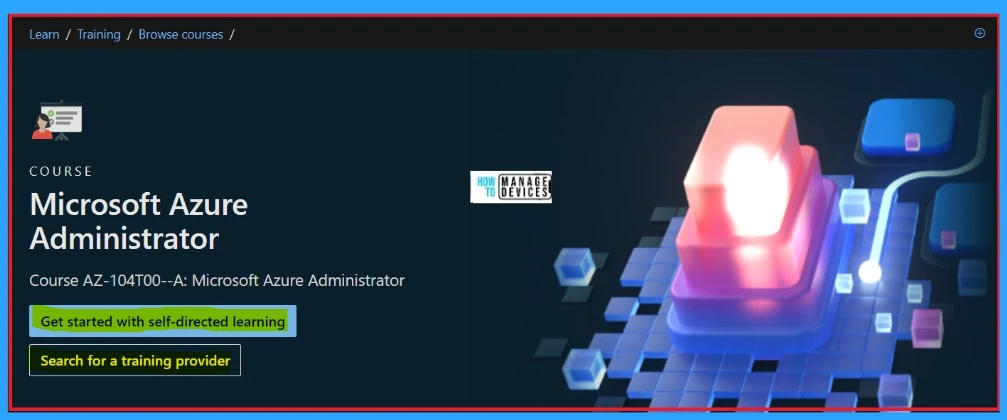
4. Configuring and Operating Microsoft Azure Virtual Desktop
In this course, you can learn (Azure administrators) how to plan, deliver, and manage virtual desktop experiences and remote apps on Azure using Azure Virtual Desktop. This course covers networking, host pools, session hosts, FSLogix, monitoring, and automation.
The course prepares students for the AZ-140: Configuring and Operating Microsoft Azure Virtual Desktop certification exam.
Read more – What is Azure Virtual Desktop AVD
Note: Students have prior knowledge of on-premises virtual desktop infrastructure technologies.
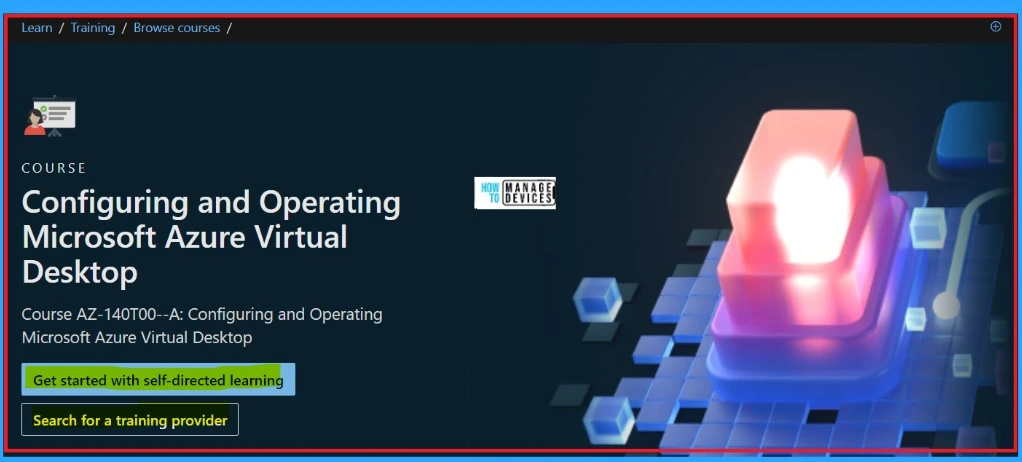
5. Designing Microsoft Azure Infrastructure Solutions
This course teaches Azure Solution Architects how to design infrastructure solutions using various Azure services and technologies. In this topic, you can learn governance, computing, application architecture, storage, data integration, authentication, networks, business continuity, and migrations.
The students must have experience and knowledge in IT operations, including networking, virtualization, identity, security, business continuity, disaster recovery, data platforms, and governance.
| Level | Role | Course Duration | Product |
|---|---|---|---|
| Advanced | Solution Architect | 4 days | Azure |
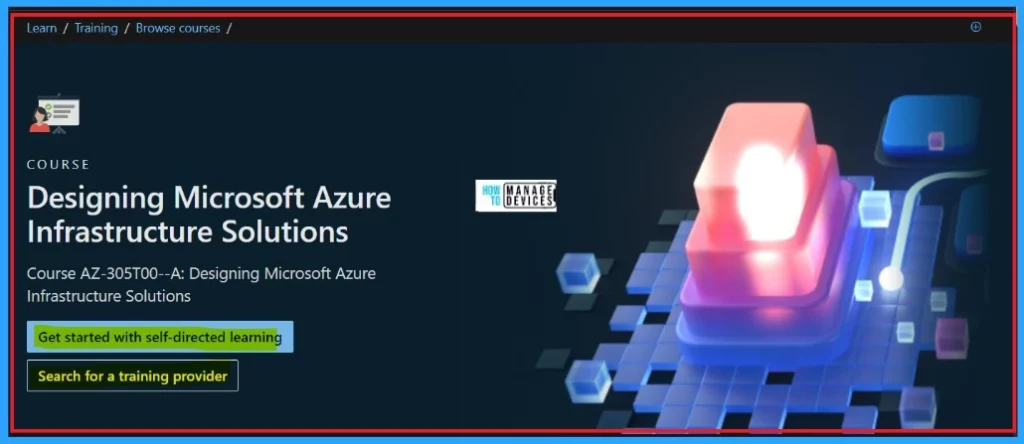
6. Microsoft Azure Data Fundamentals
This course introduces core data concepts and related Microsoft Azure data services. This course teaches you about relational, non-relational, big data, analytics, and how to use Microsoft Azure’s cloud services.
This course is for those who are interested in the fundamentals of database concepts in a cloud environment. Students will gain basic skills in cloud data services and build their foundational knowledge of cloud data services.
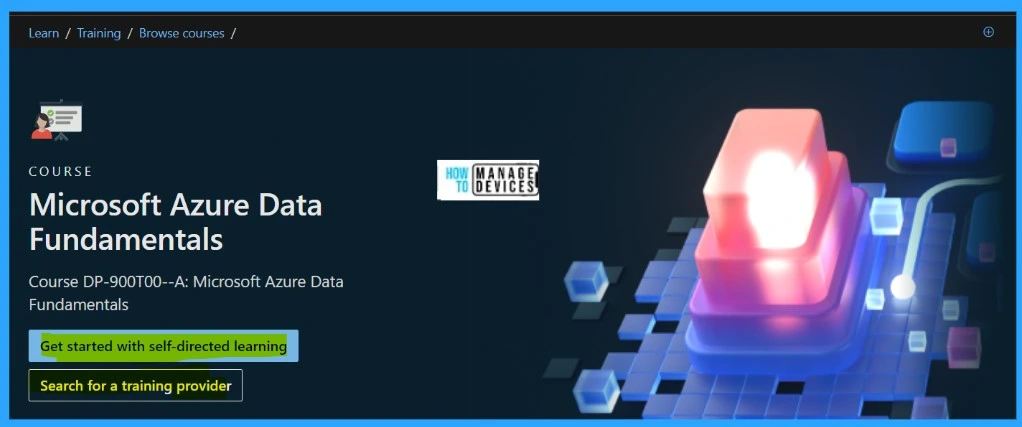
7. Microsoft Azure AI Fundamentals
In the Microsoft Azure AI Fundamental course, you will learn fundamental concepts related to artificial intelligence (AI). Azure services can be used to create AI solutions. This course is for those interested in AI workloads and Azure AI services.
In this course, you will gain awareness of typical AI workloads, such as computer vision, natural language processing, and conversational AI, and the ability to identify Azure services to support them.
Read more – AI-Powered Security from Microsoft
Note: The course does not require prior Azure experience, but a basic familiarity with computer technology and the Internet is assumed.
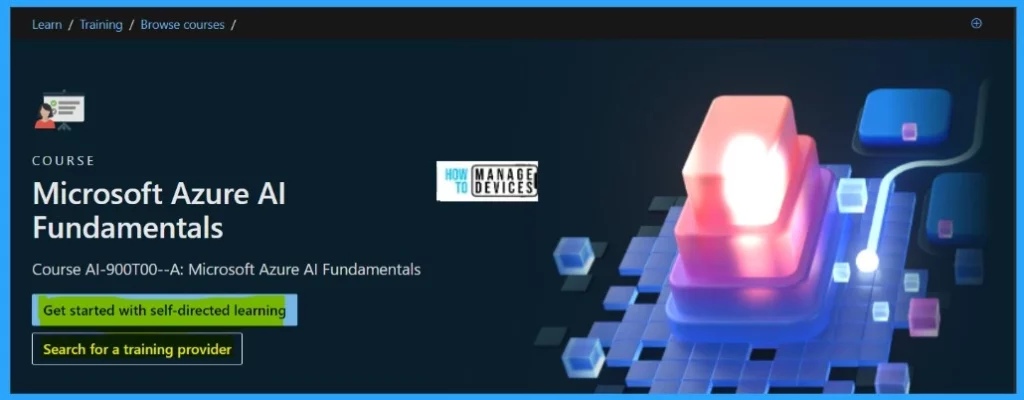
8. Designing and Implementing a Microsoft Azure AI Solution
AI-102 Designing and Implementing an Azure AI Solution is a course for software developers who want to build AI applications using Azure AI Services, Azure AI Search, and Azure OpenAI.
The course is mainly for software engineers who are familiar with C# or Python and know how to use REST-based APIs to create various AI solutions on Azure.
Note: The course can be either instructor-led training or self-paced study.
| Level | Role | Course Duration | Product |
|---|---|---|---|
| Intermediate | AI Engineer | 4 Days | Azure |
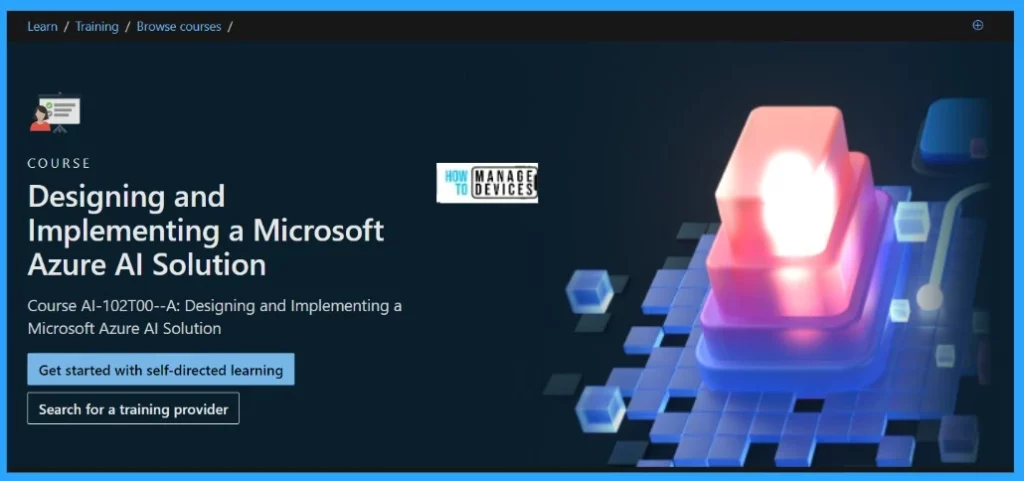
- Azure VM Inspector Tool for Troubleshooting Issues of Virtual Machines
- Copilot in Excel AI Integration to Automate Excel Tasks Coming Soon
9. Develop Generative AI Solutions with Azure Open AI Service
This course is for the Azure OpenAI service, which provides access to OpenAI’s powerful large language models, such as GPT. It covers providing the service, deploying models, and using them in generative AI applications.
The course is designed for software developers and data scientists who need to use large language models for generative AI. The course can be taken in instructor-led training or self-paced study modes.
Note: Students need an Azure subscription approved to access the Azure OpenAI service.
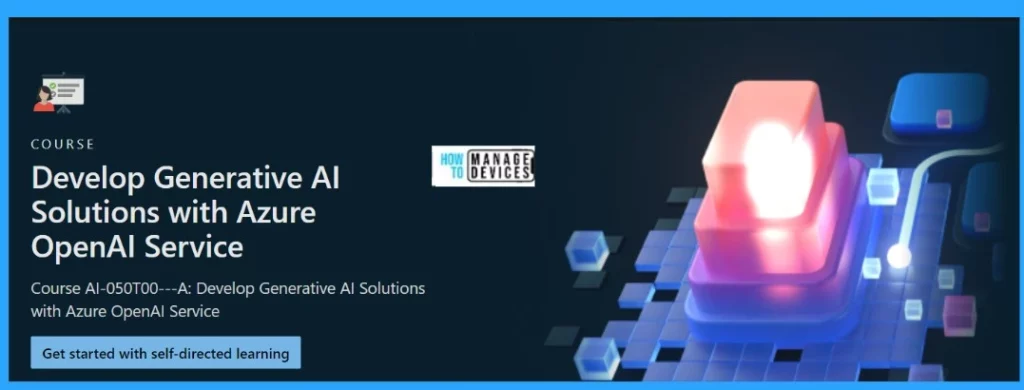
10. Microsoft Security, Compliance, and Identity Fundamentals
This course provides foundational-level knowledge on security, compliance, identity concepts and related cloud-based Microsoft solutions. The content aligns with the SC-900 exam objective domain. Students must have a general understanding of networking and cloud computing concepts.
Candidates should be familiar with Microsoft Azure and Microsoft 365 and security, compliance, and identity (SCI) fundamentals across cloud-based and related Microsoft services.
| Level | Role | Course Duration | Product | Languages |
|---|---|---|---|---|
| Beginner | Student | 1 day | Microsoft Azure, Microsoft 365 | EnglishArabicChinese (Simplified)Chinese (Traditional)FrenchGermanIndonesianItalianJapaneseKoreanPortuguese (Brazil)RussianSpanish |
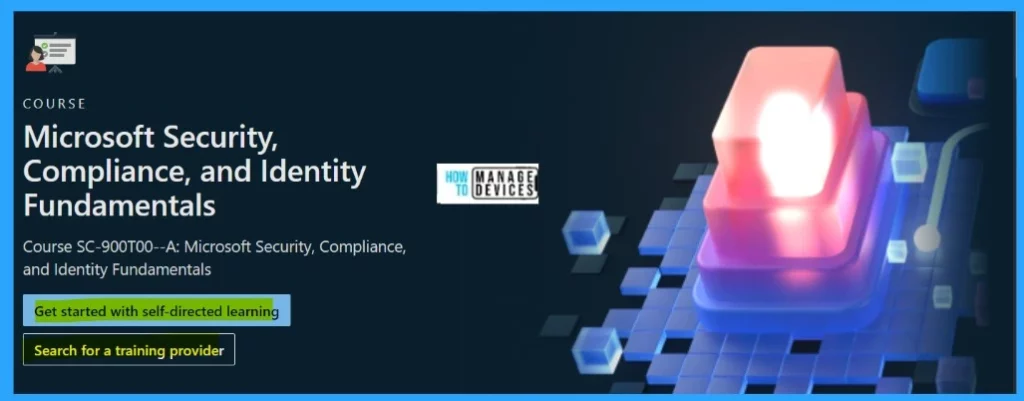
11. Data Engineering on Microsoft Azure
This course teaches how to implement and manage data engineering workloads on Microsoft Azure, using various Azure services for data transfer, transformation, storage, analysis, and visualization.
The primary audience for the course is data professionals, data architects, and business intelligence professionals. The secondary audience is data analysts and data scientists working with Azure analytical solutions.
Note: The course also provides practical skills and knowledge for data engineering on Azure

12. Microsoft Security Operations Analyst
The course is designed for Security Operations Analysts and helps prepare for the exam SC-200. This course will teach you how to mitigate cyber threats using these technologies. Also, you will configure and use Microsoft Sentinel and Kusto Query Language (KQL) to perform detection, analysis, and reporting.
Microsoft Security Operations Analyst is a role that reduces organizational risk by mitigating threats in multicloud environments.
| Type | Role | Course Duration | Product | Languages |
|---|---|---|---|---|
| Intermediate | Security Engineer | 4 Days | Azure, Microsoft 365 | EnglishFrenchGermanPortuguese (Brazil)Spanish Chinese (Simplified)Japanese Korean |
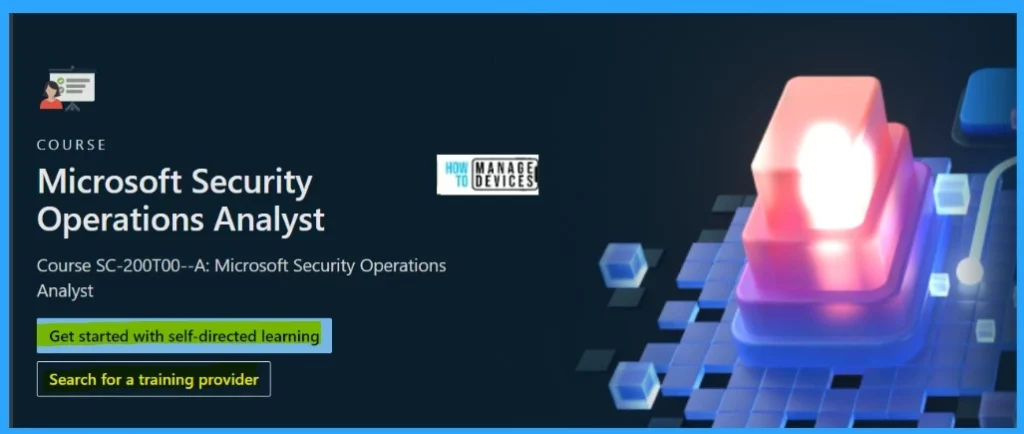
13. Designing and Implementing Microsoft Azure Networking Solutions
This course mainly teaches Network Engineers how to design, implement, and maintain Azure networking solutions. This course covers core Azure networking infrastructure, Hybrid Networking connections, load balancing, routing, private access, security, and monitoring.
The course helps design and implement a secure, reliable network infrastructure in Azure and establish hybrid connectivity, routing, private access to Azure services, and monitoring in Azure.
Note: This course is for Network Engineers who want to specialize in Azure networking solutions
See More: Azure Networking Services Training | Azure Tips
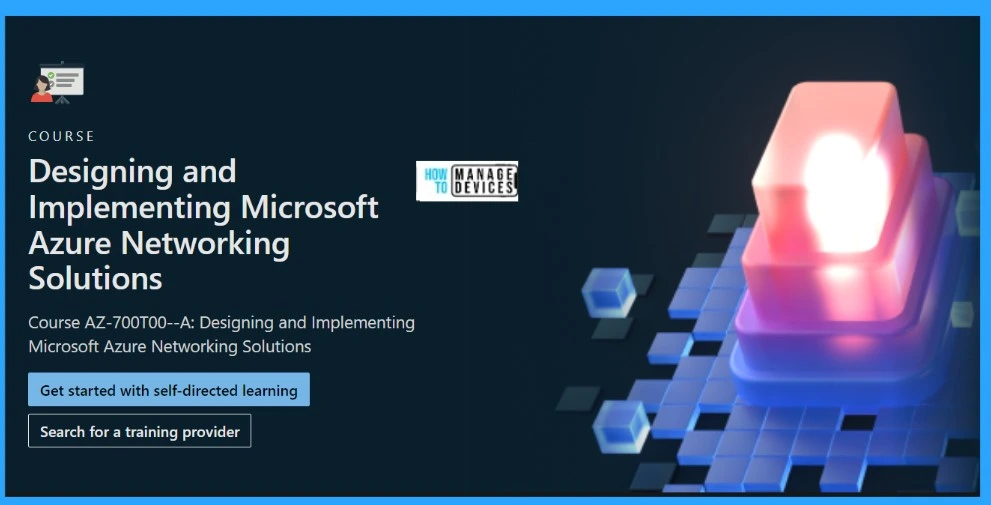
14. Designing and implementing a data science solution on Azure
The course is designed for data scientists with existing knowledge of Python and machine learning frameworks like Scikit-Learn, PyTorch, and TensorFlow. This course teaches how to manage data ingestion and preparation, model training and deployment, and machine learning solution monitoring with Azure Machine Learning and MLflow.
Note: The course requires learners to have basic knowledge of Python and machine learning concepts and familiarity with Azure and cloud computing.

We are on WhatsApp. To get the latest step-by-step guides and news updates, Join our Channel. Click here – HTMD WhatsApp.
Author
Krishna. R is a computer enthusiast. She loves writing about Windows 11 and Intune-related technologies. She likes to share her knowledge, quick tips, and tricks with the community about Windows 11 or Windows 10.
